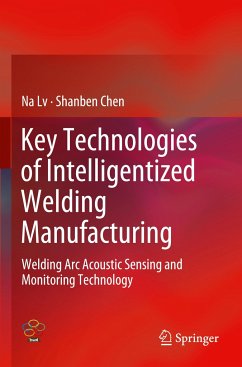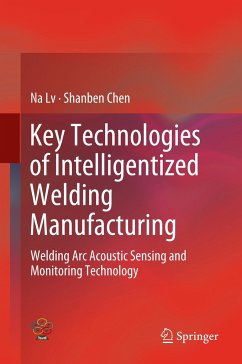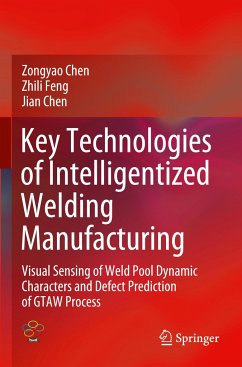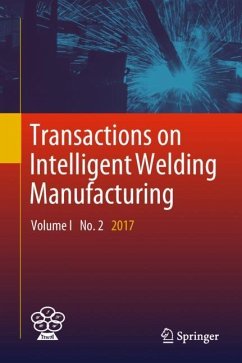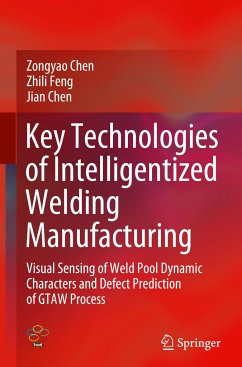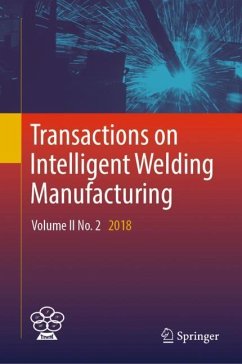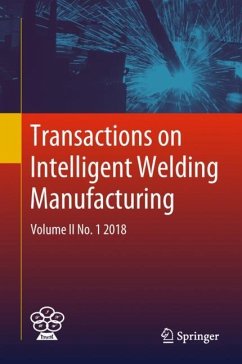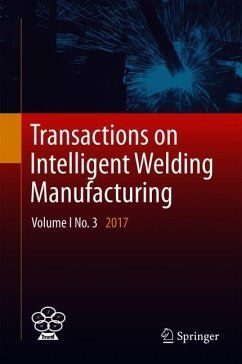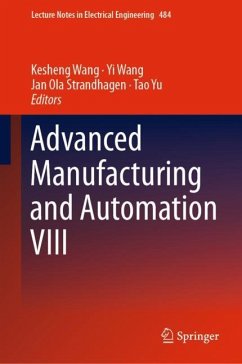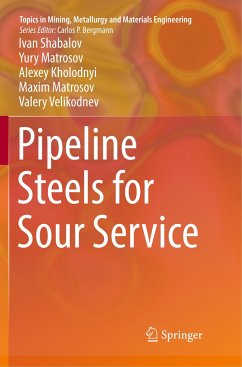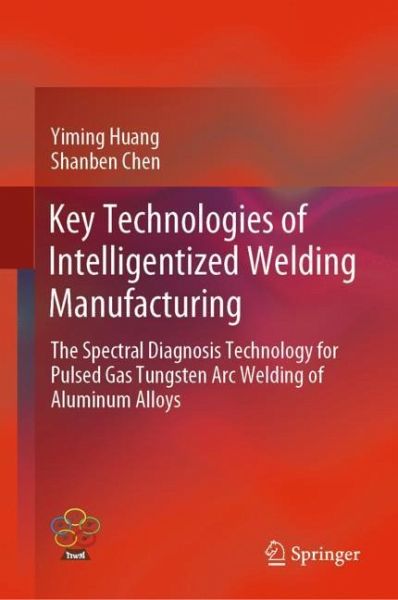
Key Technologies of Intelligentized Welding Manufacturing
The Spectral Diagnosis Technology for Pulsed Gas Tungsten Arc Welding of Aluminum Alloys

PAYBACK Punkte
38 °P sammeln!
This book presents the recent research results of the application of arc spectrum in the welding process. It sheds light on the fundamentals of monitoring welding quality using arc spectral information. By analyzing the topic both from a global and local perspective, it establishes a knowledge base of features characterizing welding statuses. Researchers, scientists and engineers in the field of intelligent welding can benefit from the book. As such, this book provides valuable knowledge, useful methods, and practical algorithms that are applicable in real-time detection of welding defects.
This book presents the recent research results of the application of arc spectrum in the welding process. It sheds light on the fundamentals of monitoring welding quality using arc spectral information. By analyzing the topic both from a global and local perspective, it establishes a knowledge base of features characterizing welding statuses. Researchers, scientists and engineers in the field of intelligent welding can benefit from the book. As such, this book provides valuable knowledge, useful methods, and practical algorithms that are applicable in real-time detection of welding defects.





